The Stars and Stripes
http://www.pstripes.com/ed102300b.html
Monday, October 23, 2000
Spent uranium rounds' health effects debated
By Ward Sanderson
Macedonia bureau
BURNING
'DEPLETED' URANIUM
PEC, Kosovo - Italian authorities are investigating whether depleted
uranium
anti-armor rounds, toxic souvenirs of the allied pounding of Kosovo,
threaten
their peacekeepers.So far, the answer is no. Italy's environmental
undersecretary, Valerio Calzolaio, announced Thursday that months of
study have
found no cases of cancer or other illnesses connected to the spent
rounds that
litter their sector of western Kosovo."There is no danger for the troops,"
Calzolaio said in the prepared statement. Nonetheless, a group of paramilitary
hazardous-material experts are preparing a new uranium investigation
from their
headquarters in Pristina. For its part, the Pentagon already has decided
that
depleted uranium poses little threat to troops or the environment -
though some
veterans and environmentalists disagree. The rounds were used by American
A-
10 "Warthogs" because of their armor-piercing properties: Depleted
uranium is
twice as heavy as lead. The rounds fly fast and tear through tanks
as if they
were Tonka toys. They ignite on impact, spewing molten metal and radioactive
dust into their armored targets. Depleted uranium also is used to stabilize
cruise missiles.The material includes waste left over from reactors
or the
manufacture of nuclear weapons. It is "depleted" because it is half
as
radioactive as naturally occurring uranium.Italian worries began in
March, when
reports circulated that Italian soldiers were coming down with leukemia
because
of uranium exposure. Two died - but neither, it turned out, had actually
spent
time in Kosovo."We have no proof of soldiers being sick with radiation,"
said
Lt. Col. Gianfranco Scalas, spokesman for the Italian-led brigade in
Kosovo.Scalas said one of the soldiers who died did duty in Bosnia;
the other
had never been to the Balkans."The guy who died in Sardinia, I knew
personally," Scalas said. "He was from my village."The reason Italians
continue
to investigate, however, is the sheer quantity of the shells fired
into their
sector. Almost half of the 112 sites targeted by the shells are in
the Italian
sector - it was home to key roads to Albania and the airport of Djackovica.
In
some cases, more than 900 rounds were fired into a target area.The
road to Pec
bears grim witness to the bombardment. Homes have no roofs, brick hotels
gape
hollow through broken windows, blown bridges threaten to launch the
unwary
driver into oblivion. The rounds used were also fired during the Gulf
War by
both the United States and Britain. Some veterans have complained the
radioactivity is responsible for Gulf War illnesses. The Pentagon,
however,
says the depleted uranium is only as dangerous as any other heavy metal,
such
as lead or mercury, and is only marginally radioactive.According to
the
Veterans Administration, depleted uranium is only dangerous when it
is breathed
as dust or enters the body as shrapnel."It's not uranium like a radiation
weapon," said German Maj. Gen. Walter Jertz, a NATO spokesman, during
a bombing
press conference last year. He said it's similar to material found
in "rocks,
soil, everywhere."But though the solid shells are of little concern,
those that
find their marks explode into a toxic cloud.Critics say that dust can
cause
cancer or kidney damage.Scalas said his troops are told not to touch
destroyed
armored vehicles or found rounds. But he also refers to the uranium
worry as
a "phantom" problem. Before sitting down to an espresso, he joked:
"It contains
depleted uranium."Still, he said all is not ecologically well: Lead
is a common
construction material in Kosovo. His troops had to empty an office
building in
Pec that was used to store trash."It was like a dump here," he said.
"Really
like a dump."During one cleanup, his troops hauled away 70 truckloads
of
trash."These," he said, "are the ecological bombs."In the past 16 months,
112
out of 4,800 Italians have gone home sick or injured.Scalas said none
was a
victim of toxic uranium. He said any problems caused by the uranium
will,
unfortunately, more than likely be those of the local Kosovars.The
Italian
investigations are ongoing. The Italian environmental agency continues
to fly
in experts for periodic studies. And the hazardous materials unit of
the
Carabinieri - or paramilitary police - are just gearing up an investigation
of
their own.One of the investigators in Pristina, Alfonso Trincone, said
their
hazmat gear has not arrived and that he could not go into details about
the
investigation. Their testing equipment should arrive before late
November.Whatever the risks of depleted uranium, whether real or imagined,
the
shells are likely to furrow brows again. And they might soon be fired
by
foreign forces with varying concern for the ecology of the countries
they
target."U.S. forces continue to use [depleted-uranium] munitions and
may employ
them in the future," a Veterans Administration report reads. "[Depleted-
uranium] penetrators are now available in international arms markets,
and may
become widely available to armies around the globe."
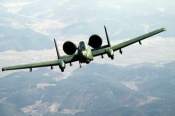

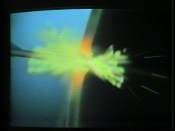
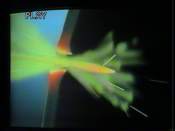
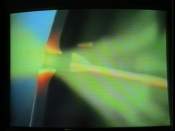
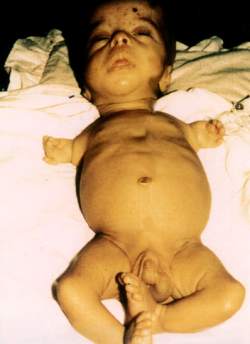
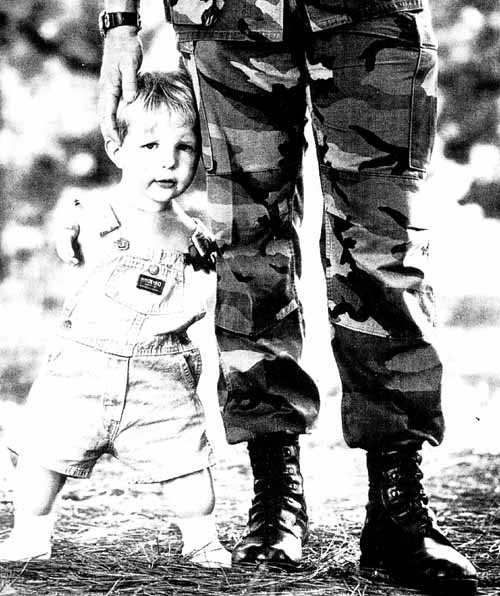
WHAT IS DEPLETED URANIUM?
BURNING
'DEPLETED' URANIUM
Homepage

